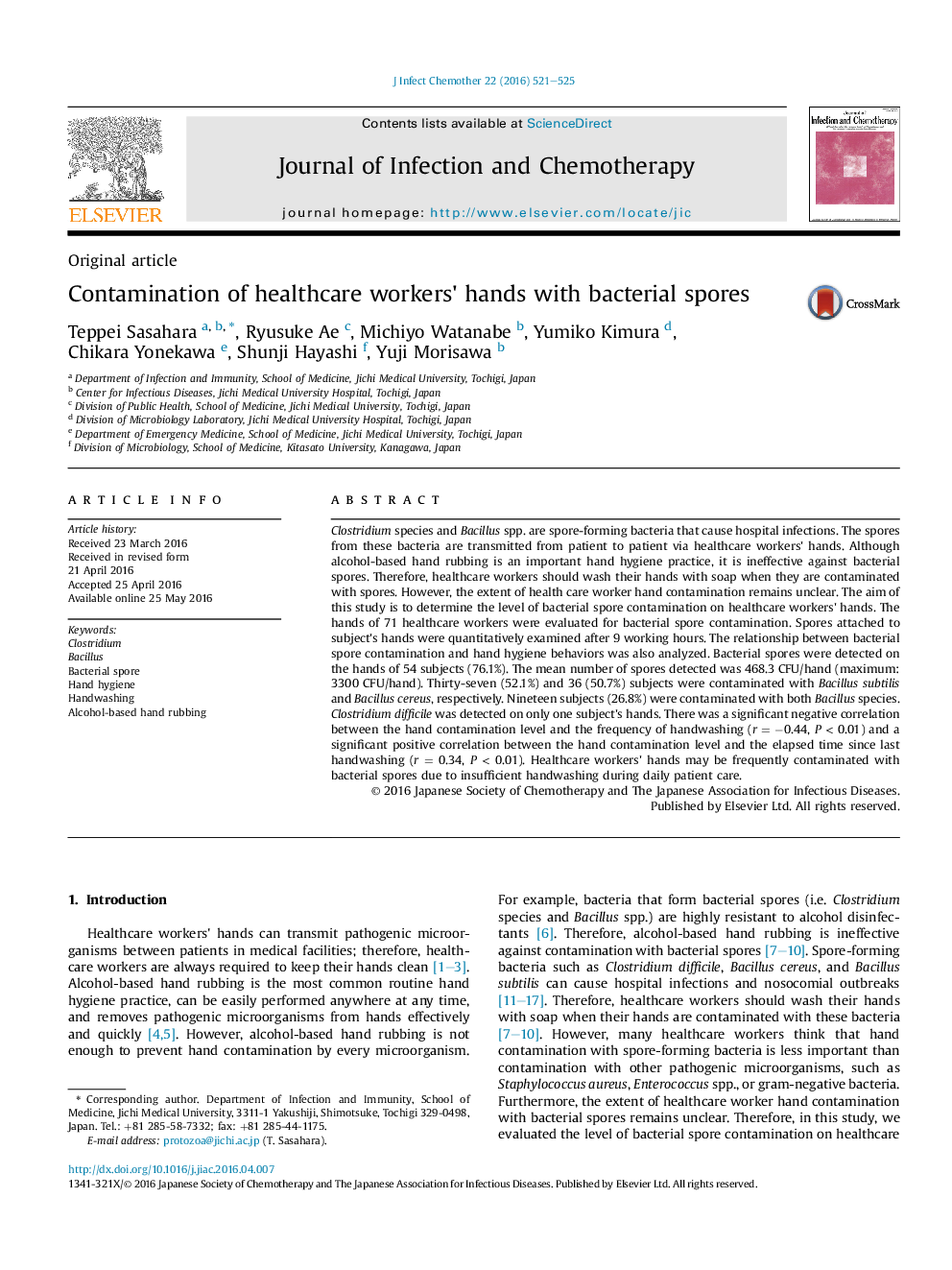| Article ID | Journal | Published Year | Pages | File Type |
|---|---|---|---|---|
| 3376667 | Journal of Infection and Chemotherapy | 2016 | 5 Pages |
Clostridium species and Bacillus spp. are spore-forming bacteria that cause hospital infections. The spores from these bacteria are transmitted from patient to patient via healthcare workers' hands. Although alcohol-based hand rubbing is an important hand hygiene practice, it is ineffective against bacterial spores. Therefore, healthcare workers should wash their hands with soap when they are contaminated with spores. However, the extent of health care worker hand contamination remains unclear. The aim of this study is to determine the level of bacterial spore contamination on healthcare workers' hands. The hands of 71 healthcare workers were evaluated for bacterial spore contamination. Spores attached to subject's hands were quantitatively examined after 9 working hours. The relationship between bacterial spore contamination and hand hygiene behaviors was also analyzed. Bacterial spores were detected on the hands of 54 subjects (76.1%). The mean number of spores detected was 468.3 CFU/hand (maximum: 3300 CFU/hand). Thirty-seven (52.1%) and 36 (50.7%) subjects were contaminated with Bacillus subtilis and Bacillus cereus, respectively. Nineteen subjects (26.8%) were contaminated with both Bacillus species. Clostridium difficile was detected on only one subject's hands. There was a significant negative correlation between the hand contamination level and the frequency of handwashing (r = −0.44, P < 0.01) and a significant positive correlation between the hand contamination level and the elapsed time since last handwashing (r = 0.34, P < 0.01). Healthcare workers' hands may be frequently contaminated with bacterial spores due to insufficient handwashing during daily patient care.
